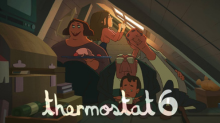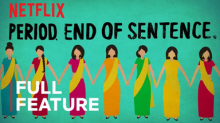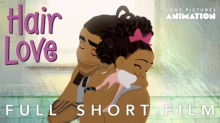Join us at the front row as we showcase the 'tall' influence of short films on filmmaking's future, where every minute counts and artistry knows no bounds!
{{ vm.tagsGroup }}
20 Jun 2024
5 Min Read
Saad Ali Siddiqui (Student Writer)
Join us at the front row as we showcase the 'tall' influence of short films on filmmaking's future, where every minute counts and artistry knows no bounds!
In the ever-evolving landscape of cinema, short films hold a unique and important place. These brief yet impactful narratives have the power to tell profound stories, evoke strong emotions, and experiment with filmmaking techniques in ways that longer feature-length films often cannot. But what exactly is a short film? Typically, a short film is defined as a motion picture shorter than a feature-length film, usually about 40 minutes or less. They serve as a proving ground for new ideas, styles, and voices, making them a vital component of filmmaking.
The digital age has transformed how we consume media, and short films have greatly benefited from this shift. Technological advancements and changes in consumer behaviour have made short films more accessible and popular than ever. The rise of online platforms like YouTube, streaming services like Netflix, and specialised hubs for short films like Short of the Week have given filmmakers the tools to share their work widely and instantly, democratising distribution.
This increased accessibility has also heightened the social impact of short films. Short films are uniquely positioned to spark conversations, raise awareness of social issues, and amplify marginalised voices. Their brevity makes them ideal for sharing on social media, where they can quickly go viral and reach audiences far beyond their initial scope. Short films addressing climate change, social justice, and personal identity have resonated deeply with viewers, fostering a greater understanding and dialogue around these critical issues.




'Thermostat 6' (2018)
Diane can't ignore the leak coming from the ceiling above the family dinner anymore…

'Period. End of Sentence.' (2018)
In rural India, where the stigma of menstruation persists, women make low-cost sanitary pads on a new machine and stride toward financial independence.

'Hair Love' (2019)
Hair Love, an Oscar®-winning animated short film from Matthew A. Cherry, tells the heartfelt story of an African American father learning to do his daughter's hair for the first time.

'Thermostat 6' (2018)

'Period. End of Sentence.' (2018)

'Hair Love' (2019)
One of the most compelling characteristics of short films is their unique storytelling potential. The condensed format encourages filmmakers to experiment with narrative structures, pacing, and visual techniques that might be considered too risky or unconventional for feature-length films. This innovative spirit often leads to highly creative and memorable works that push the boundaries of traditional storytelling. Short films also encompass a diverse range of genres and styles, highlighting the artistic freedom available to filmmakers. Whether conveying deeply emotional dramas, exploring mind-bending science fiction tales, or presenting visually stunning animations, short films offer a versatile platform for creative expression appealing to a broad audience.
The creative process behind short filmmaking is inherently collaborative, often involving small, passionate teams pooling different ideas and diverse skills to bring a shared vision to life. Filmmakers frequently leverage the constraints of the short film format to their advantage, finding innovative solutions to storytelling challenges such as visual storytelling, single-location stories, or minimalist approaches. For instance, minimalism in dialogue, setting, and plot can create a powerful, concentrated impact by stripping down stories to essential elements, thus focusing attention on key themes and emotions. Ultimately, this collaborative and resourceful approach to short filmmaking results in compelling stories and fosters a sense of community and shared purpose among filmmakers.
As technology advances, so does the industry of short filmmaking. Advancements like augmented reality (AR), virtual reality (VR), and interactive storytelling platforms hold great potential for the future of short films by promising more immersive and interactive experiences. For example, VR can transport viewers directly into the heart of a story using headsets, providing a 360-degree perspective that traditional films cannot offer. Moreover, technological innovations are enhancing the accessibility of short films for people with disabilities. Closed captioning, audio descriptions, and other assistive technologies ensure that more people can enjoy and appreciate short films. This increased accessibility broadens the audience for short films and promotes inclusivity and representation within the medium.
Cultural trends of globalisation and sustainability are poised to shape the future of short films. As filmmakers draw inspiration from diverse cultures and perspectives, the themes and narratives of short films will increasingly reflect our global society. Sustainability in filmmaking practices is also gaining prominence as the industry seeks to minimise its environmental impact. This includes adopting eco-friendly production methods such as energy-efficient lighting, waste reduction on set, and digital distribution over physical. Additionally, filmmakers are sourcing sustainable materials for sets and costumes and promoting green practices among cast and crew, like recycling and carpooling. By integrating these environmentally conscious approaches, the filmmaking industry can significantly reduce its carbon footprint both on and off-screen.
To truly appreciate the artistry of short films, one must experience them firsthand. Here are a few recommendations across different genres and styles:
1. 'Paperman' (2012)
A charming, dialogue-free animated short from Disney that combines traditional and computer animation to tell a heartfelt love story.

An emotional animated short that delves into the relationship between a young boy and a three-legged dog, exploring themes of empathy and acceptance.

An Oscar-winning short drama that explores the life of a man with a severe speech impediment, highlighting themes of communication and self-acceptance.

4. 'Piper' (2016)
A beautifully animated Pixar short that follows a young sandpiper learning to overcome its fear of the ocean, showcasing stunning visuals and a touching narrative.

A powerful drama about a young deaf girl who learns to communicate through sign language, addressing issues of accessibility and inclusion.

In a world where every minute counts, short films remind us of the power of concise storytelling. They invite us to explore diverse narratives, experience innovative artistry, and engage deeply with important social issues. Whether you're watching these films, attending film festivals, or engaging with the short film community, you can support and celebrate the creativity of filmmakers dedicated to this vibrant medium. For aspiring filmmakers, short films provide an invaluable opportunity to explore new techniques, experiment with storytelling, and share your unique perspective with the world. So, whether you're a film enthusiast or a future filmmaker, embrace the world of short films, where small packages deliver big messages, and be inspired to create and appreciate the art of storytelling in its most impactful form.
Saad Ali Siddiqui is currently pursuing a Bachelor of Mass Communication (Honours) at Taylor's University, specialising in Journalism and Media Practice. From international gold medalist Taekwondo fighter to creative writer, Saad weaves his passions and experiences into a vibrant tapestry of storytelling!